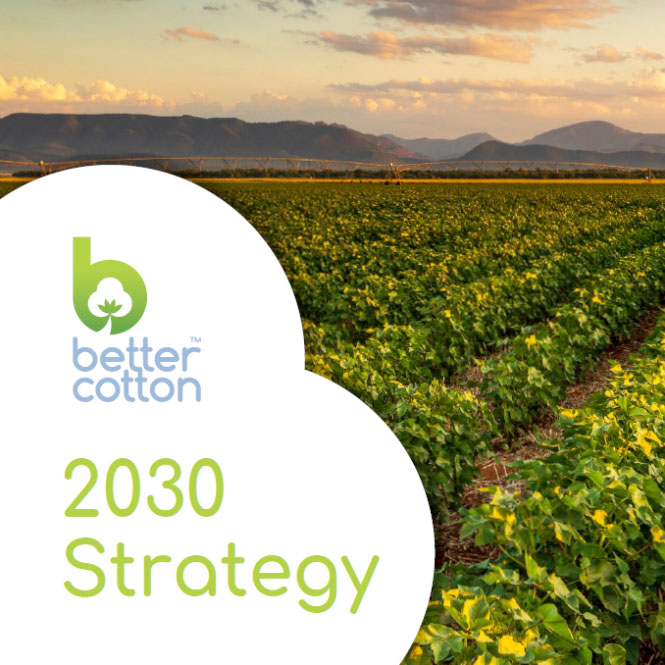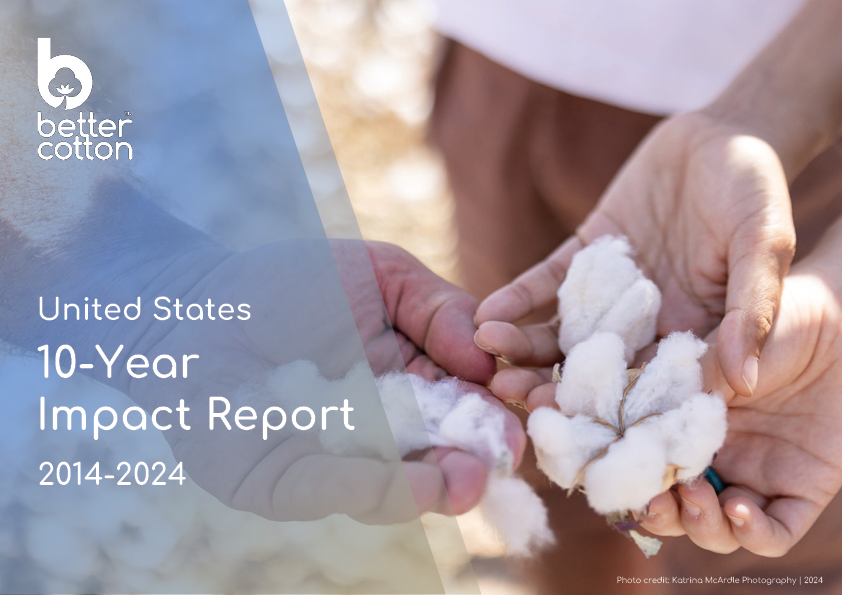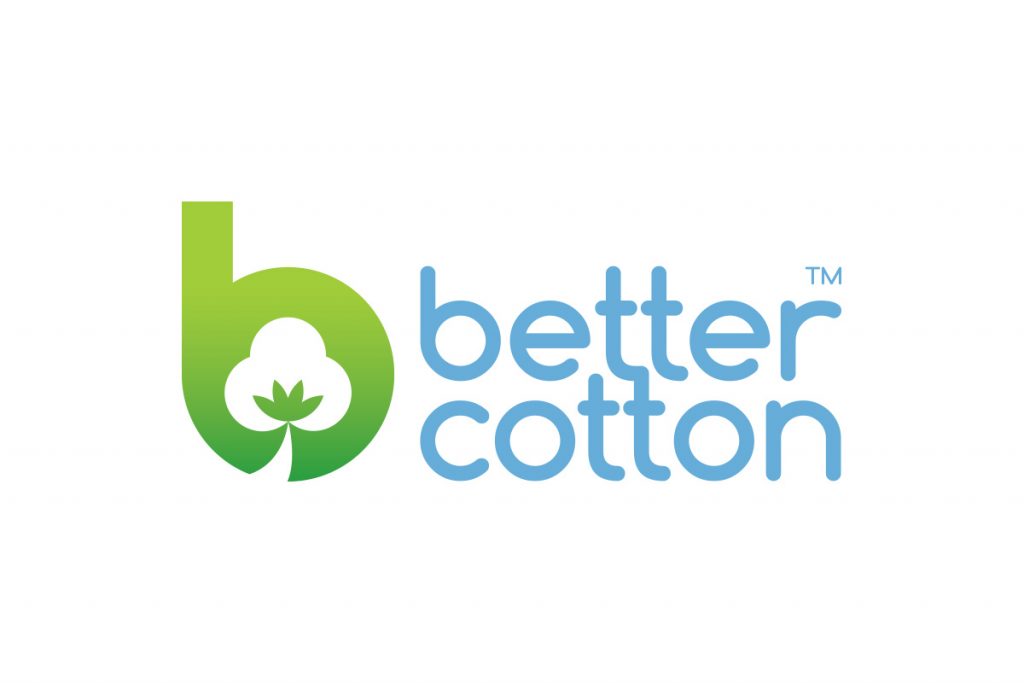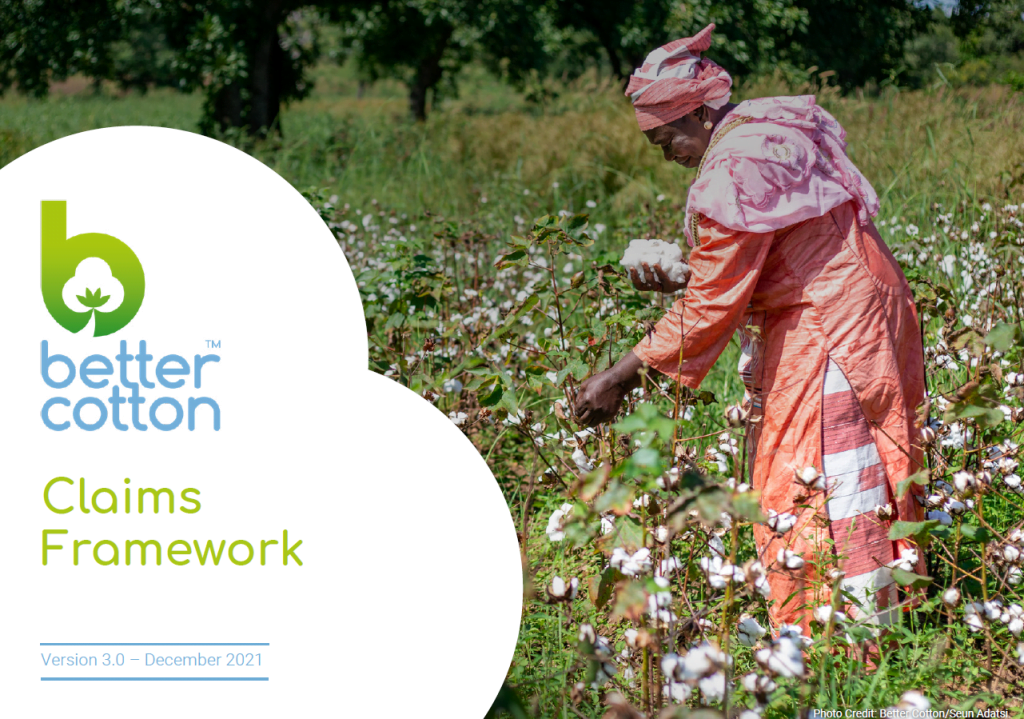- Who we are
- What we do
In just over 10 years we have become the world’s largest cotton sustainability programme. Our mission: to help cotton communities survive and thrive, while protecting and restoring the environment.
- Where we grow
Better Cotton is grown in 22 countries around the world and accounts for 22% of global cotton production. In the 2022-23 cotton season, 2.13 million licensed Better Cotton Farmers grew 5.47 million tonnes of Better Cotton.
- Our impact
- Membership
Today Better Cotton has more than 2,700 members, reflecting the breadth and diversity of the industry. Members of a global community that understands the mutual benefits of sustainable cotton farming. The moment you join, you become part of this too.
- Associate Membership
- Civil Society Membership
- Producer Organisation Membership
- Retailer and Brand Membership
- Supplier and Manufacturer Membership
- Find Members
- Member Monitoring
- Better Cotton Platform
- myBetterCotton
- Resources – Better Cotton Conference 2022
- Complaints
- Whistleblowing
- Safeguarding
- Get Involved in the Better Cotton Programme
- Thank you for contacting us
- Better Cotton’s Data Privacy Policy
- Log in
- Members’ Area
- Request for Proposals
- Better Cotton Cookie Policy
- Web Reference
- Measuring Cotton Consumption
- How to Implement the Chain of Custody Standard
- Resources – Better Cotton Conference 2023
- Certification Bodies Old
- Latest
- Sourcing
- Latest
The founding premise of Better Cotton is that a healthy sustainable future for cotton and the people that farm it is in the interests of everyone connected with it.
Let us help you find what you’re looking for
Results for {phrase} ({results_count} of {results_count_total})Displaying {results_count} results of {results_count_total}
With greenwashing an ever-growing issue and apparel brands being investigated for overclaiming their sustainability credentials, Better Cotton’s Member Communications Manager, Ellie Gaffney, shares why when it comes to communicating to customers about sustainability, getting it right matters.

- Because generic branding and language can be misleading
We have all likely seen sustainability claims – in social media posts, alongside online products, or on in-store branding – that state that a brand, collection or product is eco-conscious, more sustainable, natural, carbon neutral… just a selection of the terms that are becoming more commonly used. But beyond these terms – what do retailers really mean?
It’s just not acceptable when retailers and brands don’t specify exactly how a particular product is more sustainable, opting instead for generic sustainability branding, which often over-simplifies or overclaims. Where language is too vague, consumers may (and do) make their own interpretation, potentially concluding that a product has better social or environmental credentials than it really does.
- Because precision and transparency, underpinned by credible data, support informed consumer choices
Many of us want to know that we are, on some level, contributing to better environmental, social and governance practices when we purchase from our favourite stores. Consumers should, if they chose, be able to understand precisely how they’re contributing to a brand’s sustainability journey. For example, the material of a product might be produced with a lower environmental impact or support a particular sustainability initiative, such as premiums for producers.
This is where a credible claim can be used effectively to tell the consumer exactly what it is that makes a product more sustainable in an unequivocal way, with more detailed information available and easily accessible as further evidence. When brands are taking genuine steps to improve the sustainability of their products or organisation, it’s vital that these efforts are highlighted and marketed correctly.
We welcome a robust cross-sector debate to collaborate on making sustainability claims more credible and reliable. This will require investment in, and dissemination of, the data to show tangible and progressive change at field level. Claims are no longer an afterthought. They are an opportunity to report on impact that will likely become mandatory.
- Because regulatory frameworks promote consistency
What one brand defines as sustainable may not be sustainable by another brand’s definition and with ever more brands communicating about sustainability, there needs to be more consistency – and we need this to happen now.
At Better Cotton, we welcome a more rigorous legislative approach. For a start, new rules presented this March by the European Commission aim to better protect consumers against false environmental claims and tighten rules around greenwashing, and we now await the latest requirement, such as the upcoming EU Green Deal and Green Claims Initiative that will be presented later in 2022.
Building on this, we want to see more cross-sector collaboration on raising the bar on sustainability marketing claims, so consumers gain more clarity and trust by seeing a consistent approach adopted across commodities and sectors.
- Because using sustainability to promote consumption is counter productive
Finally, it’s important to remember that just because a product is more sustainable, this doesn’t mean that consuming it is an active choice for good. Purchasing it might be creating fewer social and environmental impacts compared to conventional products, but there is still an impact associated with the purchase of any new product. The industry needs to maintain honest communications, making for informed consumer choices, while moving towards sustainable and circular models of production and consumption.
About Better Cotton’s approach
At Better Cotton, our membership has grown to include more than 280 Retailer and Brand Members. To ensure our members communicate to their customers in a clear, honest and transparent manner, they must adhere to our Better Cotton Claims Framework. Retailer and Brand Members must meet strict eligibility criteria before they can communicate about their commitment and sourcing of Better Cotton.
Access to the most valuable claims is linked to sourcing thresholds, which members need to meet, but also, critically, these minimum sourcing thresholds grow over time, meaning that our Claims Framework reflects our ethos of continuous improvement. This means that only members who are sourcing meaningful volumes of Better Cotton and making a corresponding financial investment in our work in the field, can make claims about Better Cotton.
Today, 55% of our Retailer and Brand Members are choosing to communicate about their commitment to Better Cotton through their use of the Better Cotton On-Product Mark. In 2021, we saw more members than ever communicating stories to their customers about the realities of their sustainability journeys, and the successes – and challenges – of sustainable cotton sourcing.
Learn more




